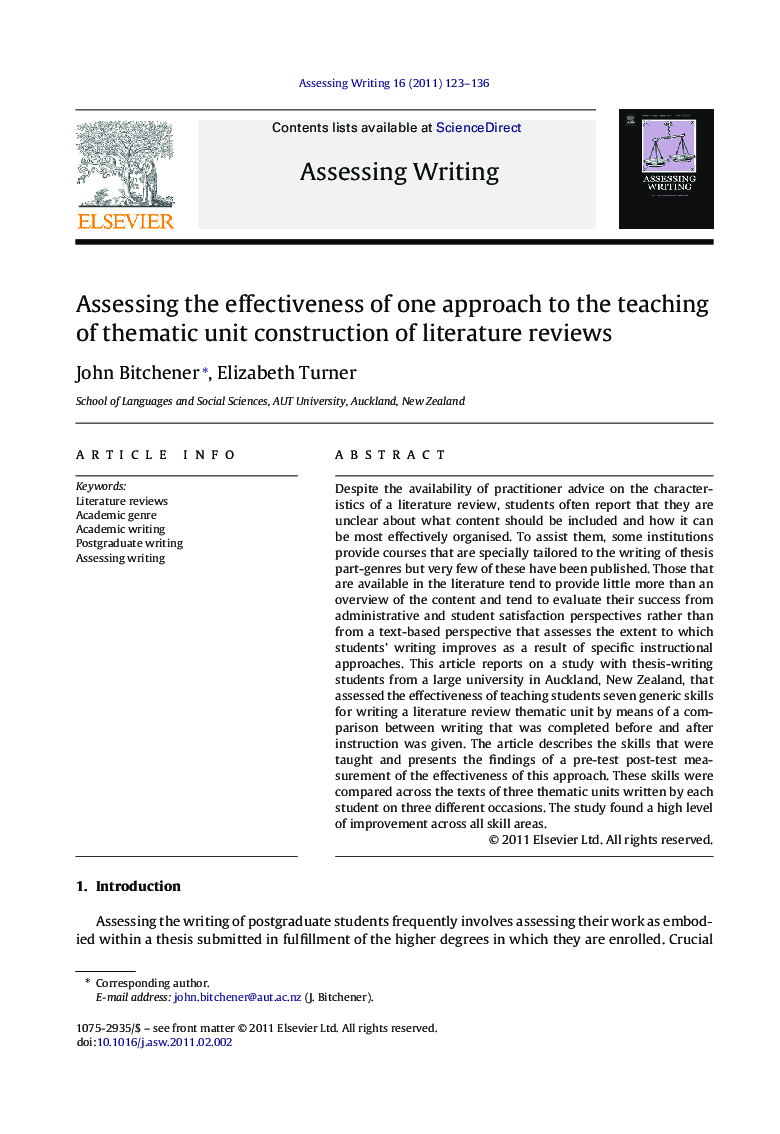| Article ID | Journal | Published Year | Pages | File Type |
|---|---|---|---|---|
| 344345 | Assessing Writing | 2011 | 14 Pages |
Despite the availability of practitioner advice on the characteristics of a literature review, students often report that they are unclear about what content should be included and how it can be most effectively organised. To assist them, some institutions provide courses that are specially tailored to the writing of thesis part-genres but very few of these have been published. Those that are available in the literature tend to provide little more than an overview of the content and tend to evaluate their success from administrative and student satisfaction perspectives rather than from a text-based perspective that assesses the extent to which students’ writing improves as a result of specific instructional approaches. This article reports on a study with thesis-writing students from a large university in Auckland, New Zealand, that assessed the effectiveness of teaching students seven generic skills for writing a literature review thematic unit by means of a comparison between writing that was completed before and after instruction was given. The article describes the skills that were taught and presents the findings of a pre-test post-test measurement of the effectiveness of this approach. These skills were compared across the texts of three thematic units written by each student on three different occasions. The study found a high level of improvement across all skill areas.
► The effectiveness of academic writing instruction can be measured if assessment criteria are clearly and sufficiently defined. ► Focused instruction and sample text analysis can result in immediate and on-going text improvements. ► Understanding how to construct one thematic unit of a literature review is essential for developing a full review.
